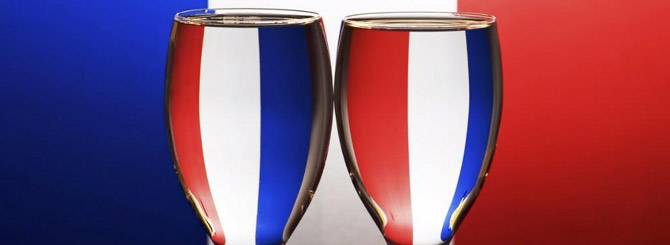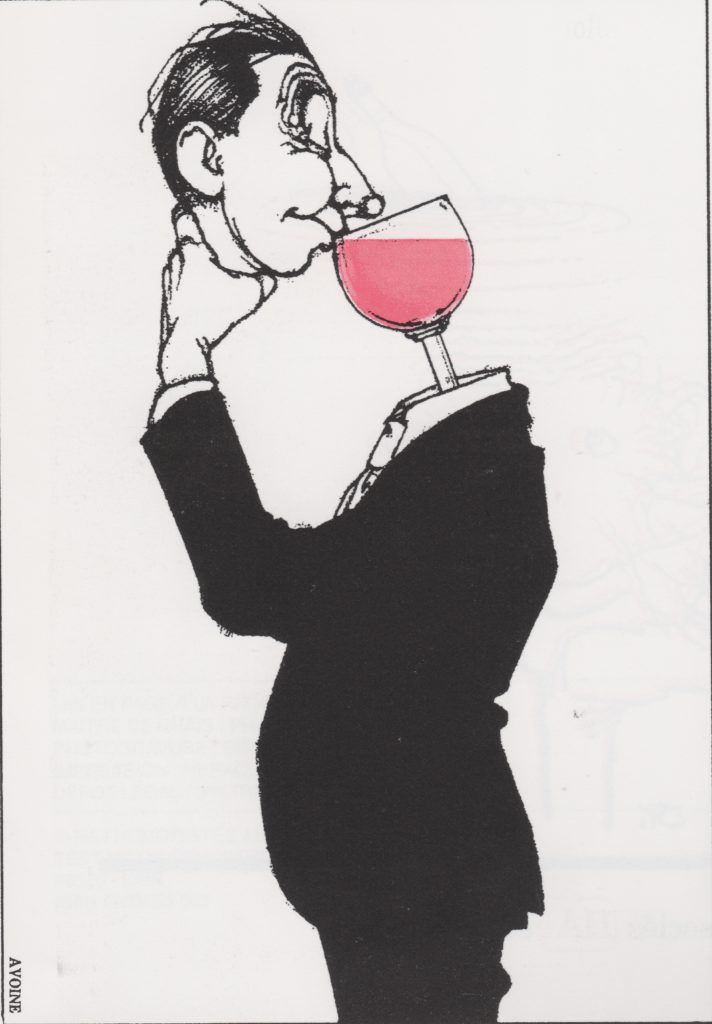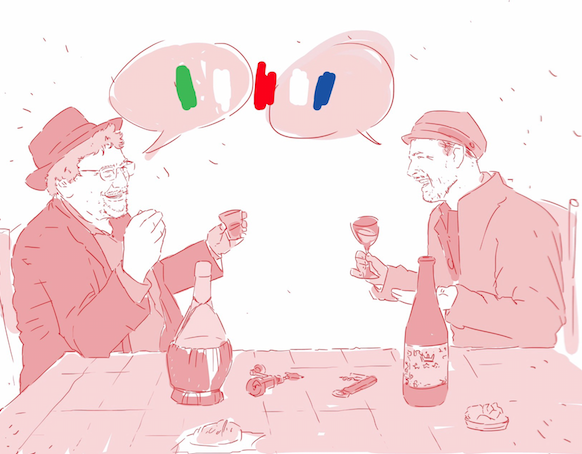WINE SEARCHER | Don Kavanagh | Tuesday, 18-Feb-2020

L’une des raisons de l’existence du blog mtonvin.net est la volonté d’ouverture du goût du vin au-delà de la France, région vinicole prédominante sur le globe souvent exclusive des autres. Elle est loin d’être la seule. Le journaliste irlandais Don Kavanagh (ci-contre) évalue statistiques à l’appui l’état du nationalisme gustatif dans les principaux pays de vin.
Measuring Wine’s Natural Chauvinism How Everyone has their own ideas about which wines they prefer, but exactly how adventurous are we, really?
Albert Einstein once said that « Nationalism is an infantile thing; it is the measles of mankind » (which is a lot pithier than even the simplified version of his General Theory of Relativity) but, when it comes to wine, some of us have a more obvious rash than others.
It’s natural to imagine that people might prefer their own local produce to similar goods shipped in from distant lands at great expense, although that would also suggest that some people would be happy to settle for gruel when they could be dining on foie gras. And that is the situation when it comes to wine.

When it comes to wine, the accepted wisdom is that – unless you are French — your local wine is inherently inferior to the imported stuff.
And if you are French, you have no interest in any wine that comes from beyond your borders. That’s not necessarily the case, however.
We took a look at wine searches from countries that produce wine and, to be perfectly honest, we assumed the situation would be akin to George Bernard Shaw’s definition of patriotism: the conviction that a particular country is the best in the world because you were born in it, but it turns out the situation is quite different.
Just four of the ten countries put their local producers first when searching for wine, while some countries even had merchants who did not stock most local wines.
Let’s get the traditional chauvinists out of the way first. The word « chauvinist » comes from France, as does our accepted wisdom as to what is good and bad when it comes to wine. France, ably abetted by the wine writers and wine merchants of Britain, effectively dictated the quality standards that have been handed down to us across the past two centuries, and mostly swallowed wholesale by people who only relatively recently began to look at this wine hierarchy as something of a long con.

And France certainly behaves according to the form guide.
Interest among French users of Wine-Searcher is massively weighted in favor of the local plonk — more than 85% of all searches from that country are for French wine, a percentage far in excess of any other. Retailers are, if anything, even more chauvinistic than French users, with a whopping 90.42% of all offers in France represented by French wines.
Those retailers are not, however, the most nationalistic; that award goes – perhaps surprisingly — to Chile, where 93.38% of all wines on offer are local. That reflects something of a lack of interest in imported wines — 62.1% of all searches in Chile are for Chilean wines.
The Chilean locals are clearly happy with what their own wineries are serving up, while the rarity and subsequent expense of imported wines clearly acts as a deterrent.
Almost as parochial are the merchants of Argentina – 91.42% of all offers there are for local wines, a reflection of both confidence in the local product and the difficulties of importing non-essential goods given the yoyo nature of the local currency. That does not prevent Argentinians from dreaming, however. Only 43.5% of searches are for local wines, suggesting that while the economy there might well be in the gutter (again), wine lovers are looking to the stars.
The US is an interesting case, too, all the more so given its status as the world’s biggest wine market. It’s an odd situation, in a way; the US is famously fond of its own wine. With a total wine market worth $70 billion, domestic consumption stands at 67%, or $47.2bn; exports account for just $1.47bn.

Nevertheless, US merchants are some of the most non-partisan retailers in the world. US wines account for 43.67% of all wines on offer through the US retailers listed with Wine-Searcher. That’s the second-lowest figure for domestic wines in the 10 countries we looked at. It reflects a slight oddity in the search figures. While 67% of wines consumed in the US are local, just 36% of US searches are for US wines, with France consuming a similar share and Italy a little way behind in third place.
Speaking of Italy, it is another country with a strong sense of national pride, especially among retailers. Some 81% of wines on offer are Italian, even though searches are a relatively restrained 59.75% in favor of local producers.
Australia and Portugal also have a strong locavore element, with domestic wines accounting for 61.5% and 88.3% of offers, respectively, while searches come down in favor of the home side at 56.7% and 52.3%, respectively.
Spain’s wine lovers are looking beyond Ribera del Duero and Rioja for their wines, with only 33.7% of searchers looking for Spanish wines, while 70% of wines on offer are domestic.
New Zealand’s situation reflects the fact that it is a small and quite remote country — 64% of searches are for overseas wines, while only 50% of wines on offer come from outside New Zealand, and the majority of those are from Australia.
The most interesting of all the major international wine-producing markets, though, is Germany, which has long been a strong market for French and Italian producers. Just 18.75% of wines listed by retailers there are German, while a tiny 6.15% of all searches were for domestic wines.
We will look at how this mix of parochialism and all-embracing internationalism is affecting major producing regions in the near future, but for now let’s raise a toast to the Germans, the less chauvinistic champions of global wine.
